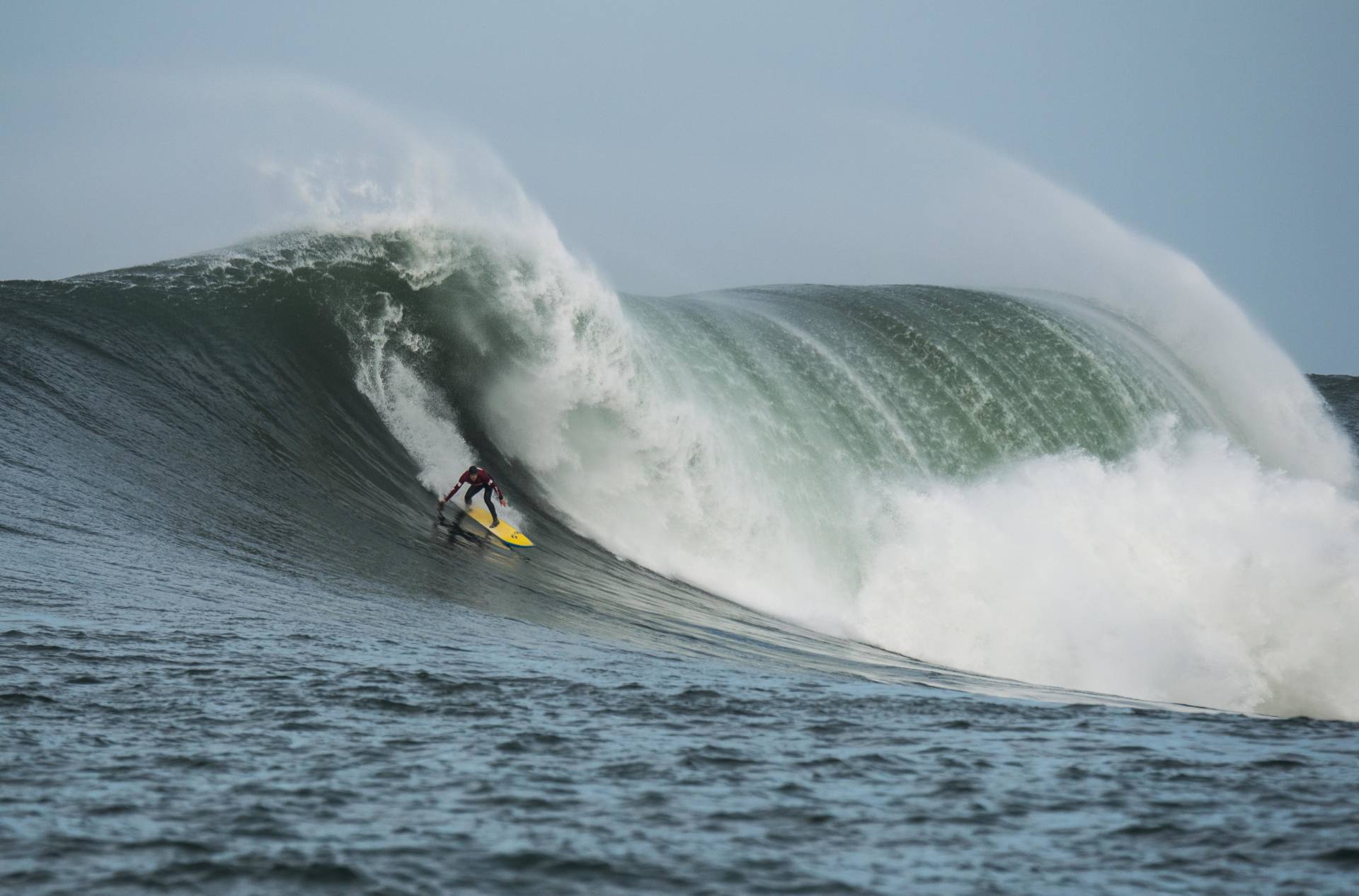“In any event where you are going across public land, then any government entity could say, ‘You have to make this equal,’ ” he said.
Following the lead set by some tennis and cycling competitions, the World Surf League, which runs the Mavericks contest near Half Moon Bay, announced a new plan this week to pay men and women equal prize money starting on Oct. 1. It came after an obscure three-person state panel indicated last month that it would lease the public beach for Mavericks only if women and men are awarded the same prize money.
“The waves do not discriminate,” the staff of the State Lands Commission wrote in an unusually blistering report.
“Male athletes are surfing and competing on the same waves as the female athletes. There doesn’t appear to be any reasonable justification to treat prize compensation differently.”
The commission—which includes prominent Democratic politicians Lt. Gov. Gavin Newsom and Controller Betty Yee—hasn’t yet voted on the issue because the league pulled its application for the lease when the report came out. But the panel was likely to approve the equal pay requirement.
“We believe there ought to be gender equity with respect to the purposes of any use of our state lands,” Yee said in an interview.
Newsom also supported the requirement, said his chief of staff, Rhys Williams: “A lease application that doesn’t reflect equal pay isn’t going to fly with him.”
Now that the league has crafted a plan to pay men and women equally, it will likely resubmit its application for Mavericks, which is typically held between October and March when the waves swell to more than 25 feet.
Under the original plan, the prize purse for women was set at $44,400 while the prize purse for men was $106,600. The purse was to be divided among all competitors in each division, with $15,000 for the woman winning first place and $25,000 for the man earning first place. Second-and third-place prizes were to have even greater gaps, with the women earning less than half of what men would. The league previously defended the plan as fair because the men’s division included more competitors.
The league did not specify the prize purse or number of competitors under the new plan, saying only that it involved “equal prize money” for male and female athletes. It declined to answer questions for this article and, in a press release, cast its new arrangement as part of a “long-planned strategy to elevate women’s surfing.”
But women who have been advocating for equal pay for surfers said the change never would have come about without the government taking a stand.
Said Sabrina Brennan of the Committee for Equity in Women’s Surfing: “It’s what gave us leverage.”
Brennan is not a surfer but she sits on the board of the San Mateo County Harbor District, so she knows a little something about government approval processes. Her fight for women surfers began in 2015, when she learned Mavericks could take place only with a permit from the California Coastal Commission. At that time women weren’t allowed to compete in the event.
“That’s when I initially realized there was an opportunity to ask a state agency to intervene and add a condition on the permit that would require women be allowed to compete,” Brennan said.
The commission agreed, and in 2016 required Mavericks to include a heat for women. But the event hasn’t been held since then, due to a lack of ideal surf conditions and a change of ownership in the management of Mavericks. So this winter was set to be the first time women would compete at the event.
As the surf league sought a new round of government permits, Brennan began to focus her lobbying on the issue of equal pay. She organized some of the world’s top female surfers—including Valenti—to send letters to the Coastal and State Lands commissions asking that they require Mavericks to pay equal prize money. A lawyer volunteered to beef up their letters with citations to relevant civil rights cases.
“It’s unfortunate that it took a tiny group of women athletes, an activist, an attorney and a couple state agencies to get them to do the right thing,” Brennan said after the league announced its new pay plan.
“But, whatever. I’m just glad it happened.”
